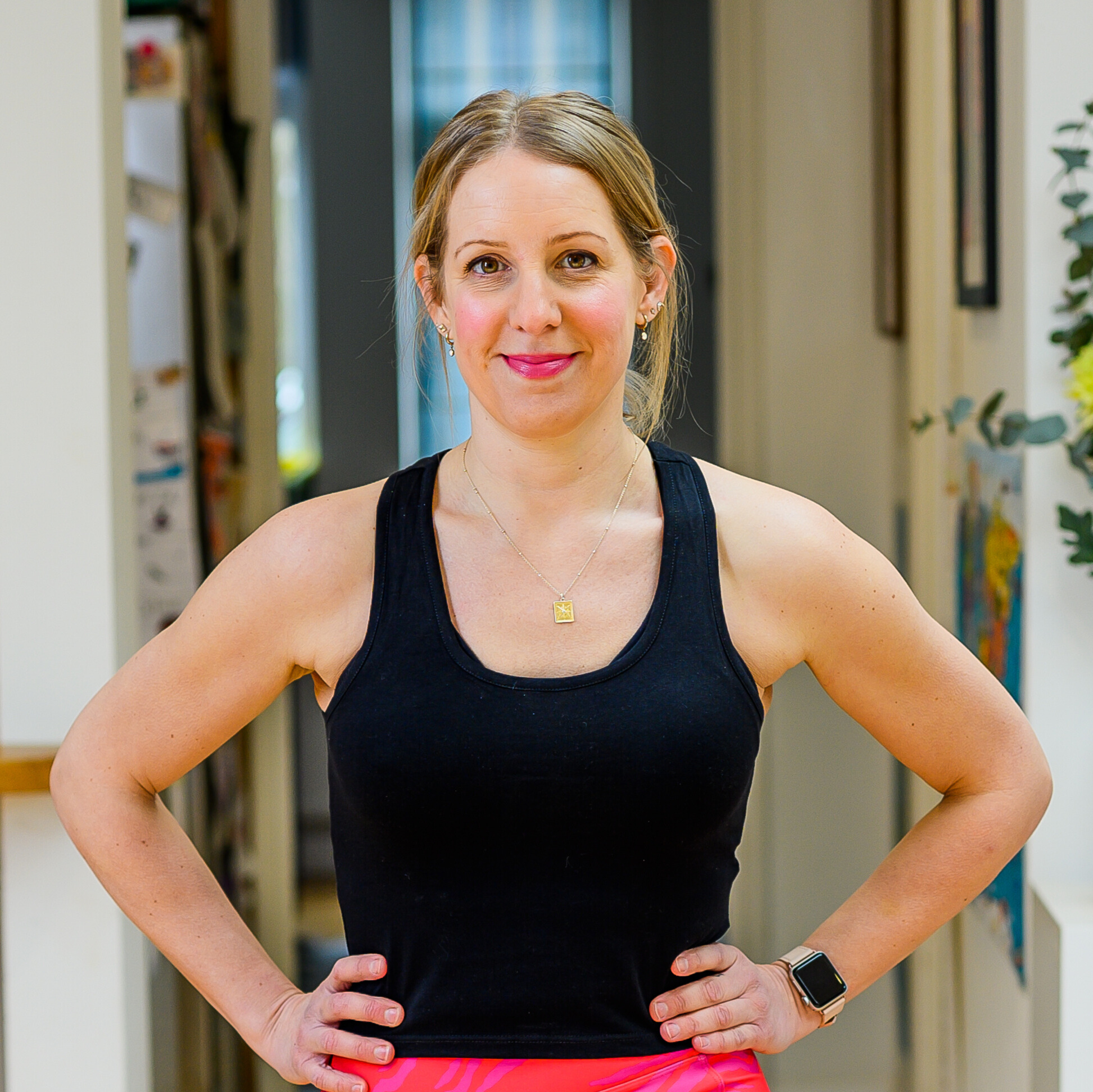Five ways to lose weight that don't involve calorie counting
Try these safe and sustainable expert-approved tips for weight loss

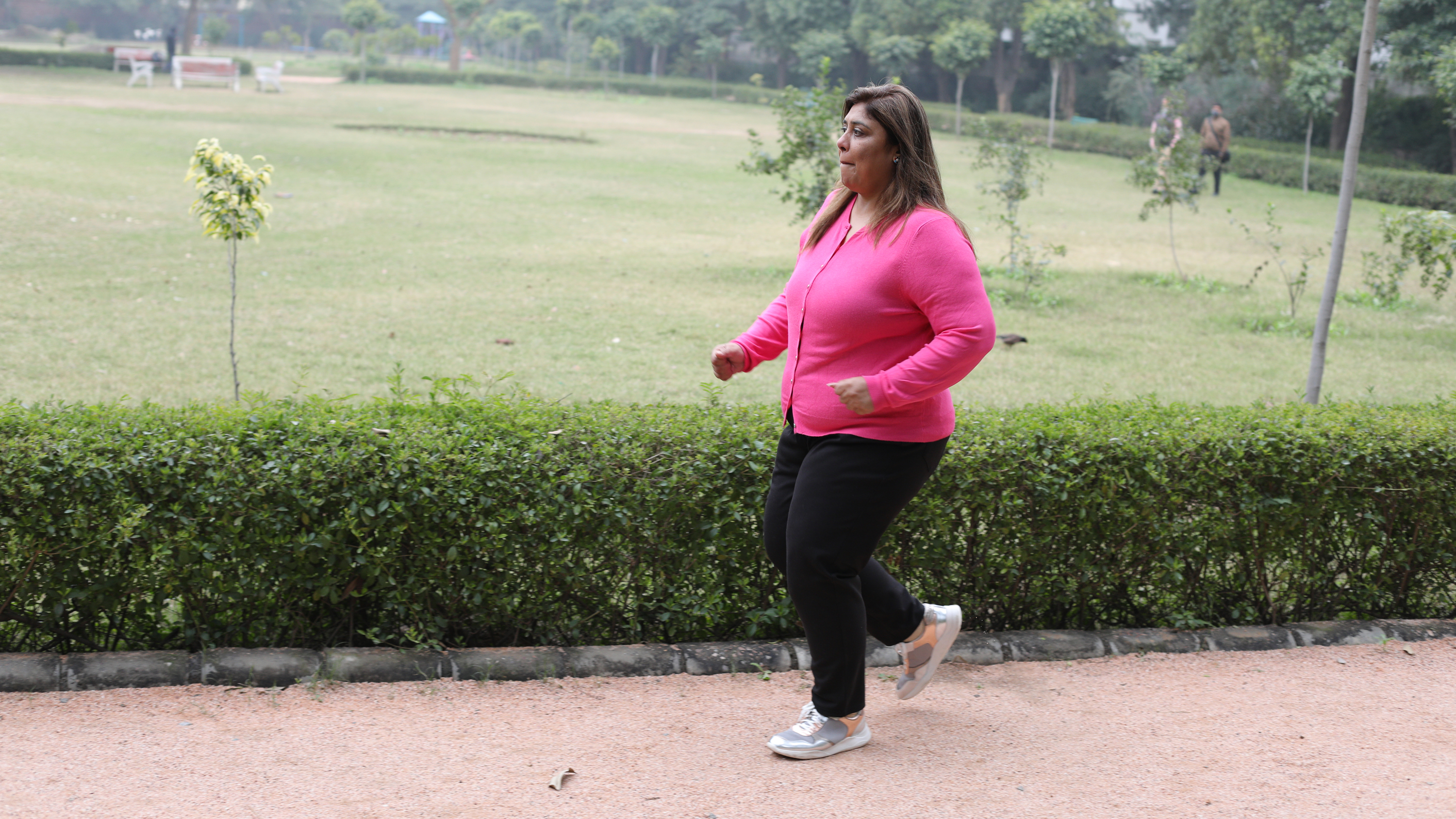
You might think losing weight means obsessively counting calories and exercising non-stop but for long-lasting change that’s not the case.
To lose weight you need to be in a calorie deficit (burning more energy than you use), but there are several things you can do to maintain a healthy relationship with food and exercise that don’t involve counting a single calorie or spending all morning on the treadmill.
Good nutrition and exercise are the best places to start, in particular prioritizing foods that are nutrient-dense and filling. Doing full-body strength workouts also burns more calories than splitting your exercise into upper- and lower-body sessions.
We spoke to personal trainer and sports scientist Sergii Putsov and NASM-qualified nutritionist Daniel Herman for their weight loss tips.

Daniel Herman is an NASM-qualified nutritionist, SAQ coach and founder of bio-synergy.uk.

Sergii Putsov is a former national team weightlifter and has a PhD in Sport Science. He's renowned for his expertise in Olympic weightlifting training and international commentary, with numerous published research papers in the field.
1. Prioritize protein
Protein is an essential macronutrient the body needs to function properly. It fuels the body with energy, repairs and builds tissue and muscle, and as it takes longer to break down and digest in the body, it keeps you fuller for longer.
Herman says: "Protein-rich foods, such as lean meats, beans and legumes, make you fuller for longer, helping to regulate your appetite. Including protein in each meal can also support muscle maintenance, especially during weight loss, when there's a risk of losing muscle mass."
2. Combine cardio exercise with strength training
Yes, cardio workouts can help you burn more calories in a short space of time, but strength training will help you build muscle, which is a metabolically active tissue. This means that muscle burns calories without you even noticing—so having a higher muscle mass will help you maintain a healthy weight.
Start your week with achievable workout ideas, health tips and wellbeing advice in your inbox.
Pustov recommends trying mountain climbers, burpees or jumping exercises, if you want to combine cardio with strength training.
Mountain climbers
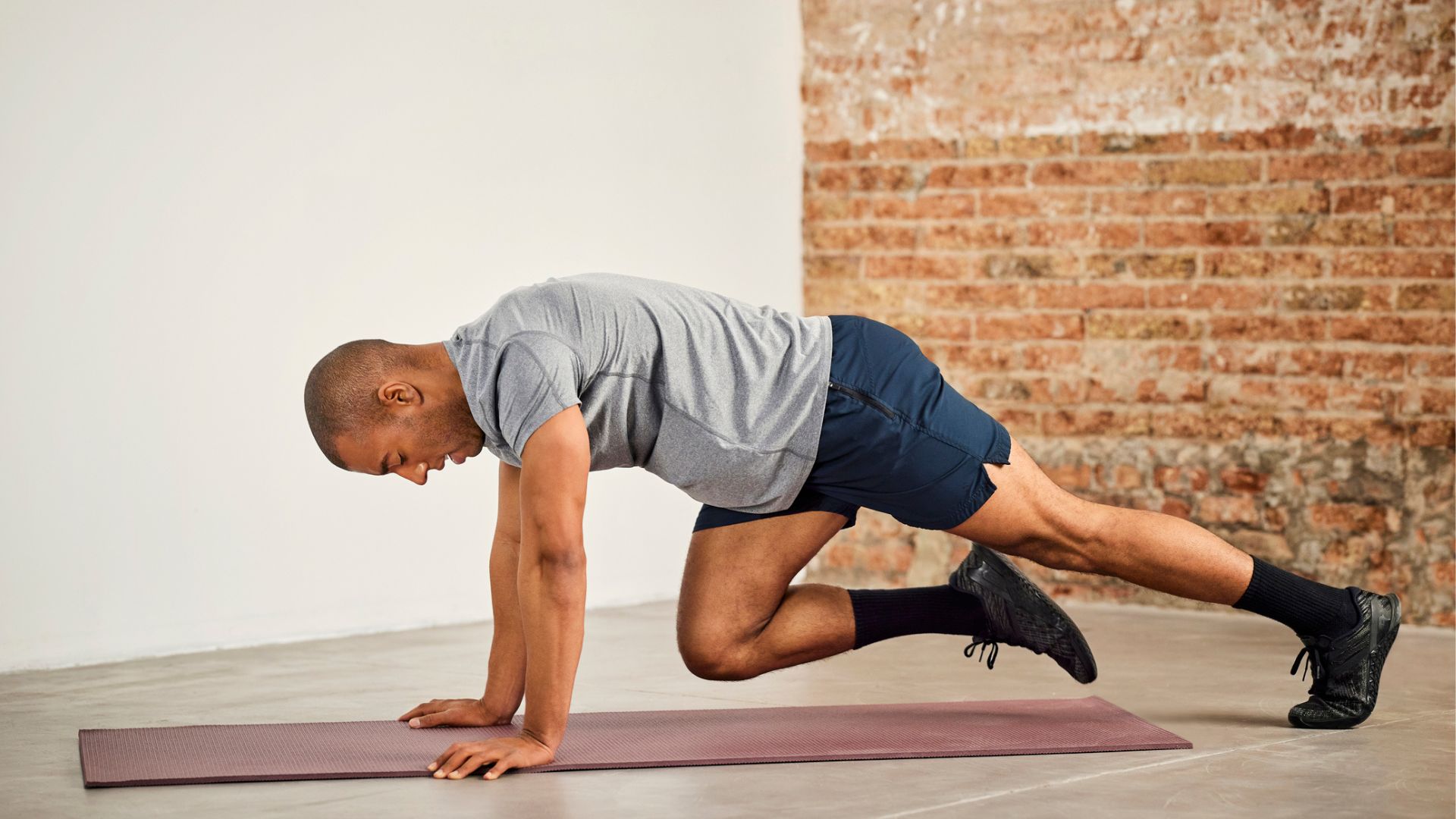
Time: 30-45 seconds Sets: 3
Start in a plank position, with your hands on the ground, underneath your shoulders, and your body forming a straight line. Quickly alternate bringing each knee towards your chest, as if you're climbing a mountain.
Jump squats
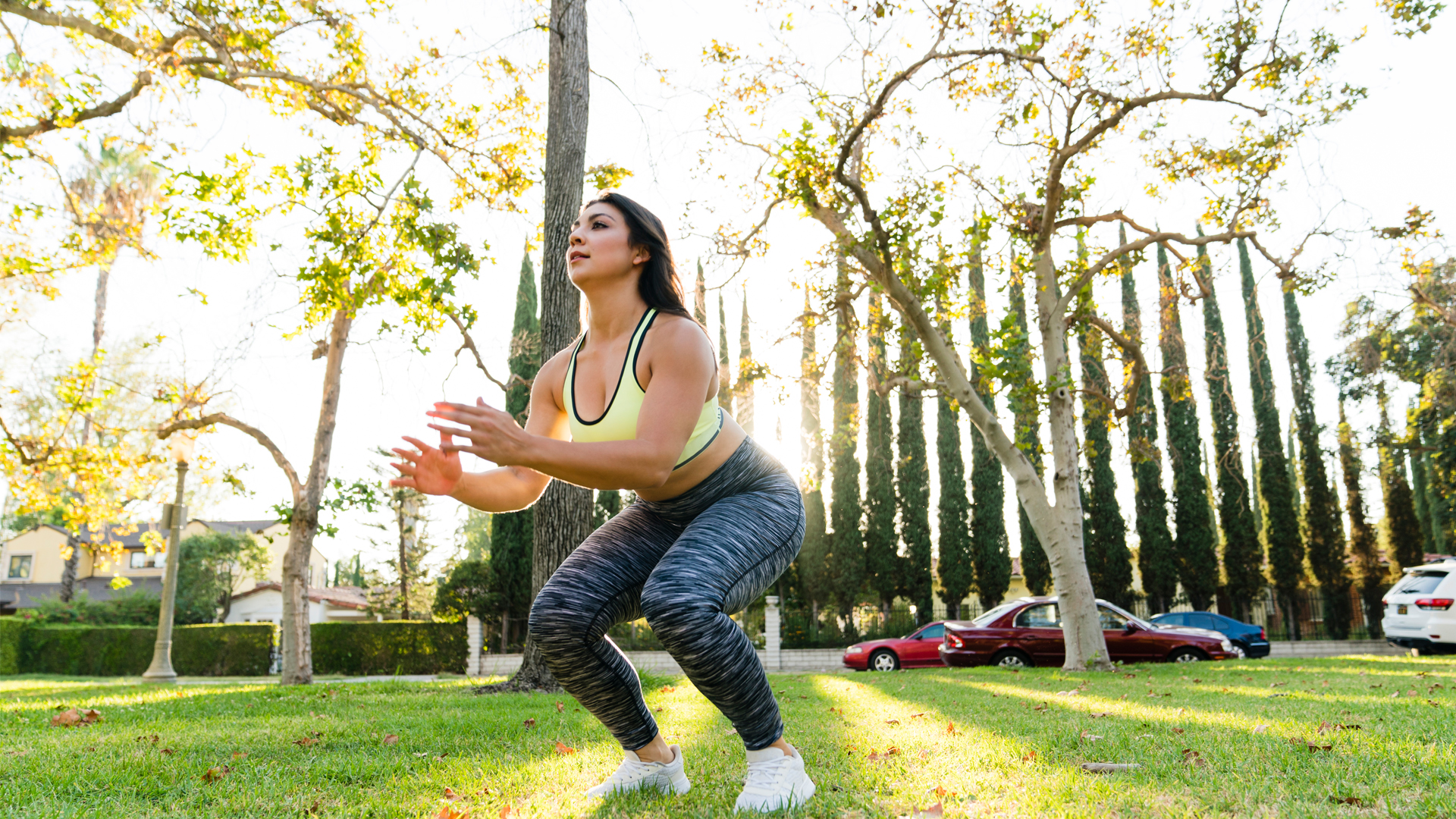
Reps: 15-20 Sets: 3
Start by doing a regular squat, then as you return to standing, jump up explosively. Upon landing, lower your body back into the squat position to complete one rep.
Beginners can start with lower reps or regular squats and build up to a jump.
Burpees
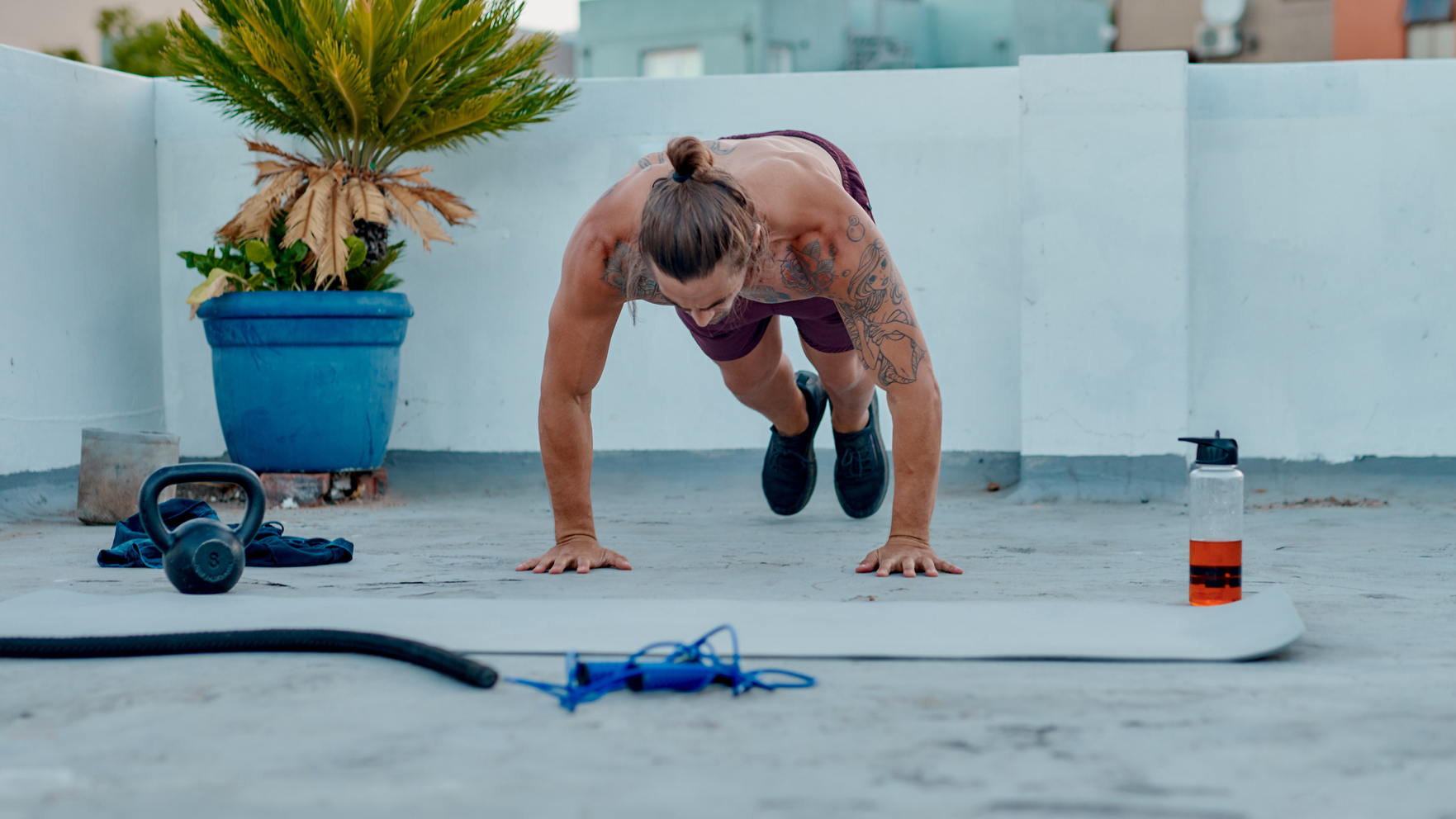
Reps: 10 Sets: 3
Begin in a standing position, drop into a squat with your hands on the ground, then kick your feet back into a plank position. If you can, try and do a push-up, before returning your feet into the squat position and explosively jumping up.
3. Practice mindful eating
Paying attention to your body's hunger and fullness cues can prevent overeating and aid weight loss, says Herman.
"Eat slowly, savor each bite, and avoid distractions like watching TV or using electronic devices during meals. This can help you recognize when you're truly satisfied, preventing unnecessary calorie consumption," he says.
4. Drink enough water
There's some evidence to suggest that increasing your water consumption can help with weight loss, as it helps you feel more satiated.
"Sometimes, our bodies can confuse thirst with hunger," says Herman. "Staying hydrated can help control appetite and prevent mindless snacking, supporting your weight loss efforts."
He suggests drinking water before a meal, but it's also a good idea to make sure your water bottle is on-hand throughout the day.
5. Watch your portion size
Being mindful of portion sizes can help you lose weight without needing to count calories, says Herman, and there’s a simple way of doing this.
"Use smaller plates, bowls and utensils to help control the amount of food you eat. This strategy can create a visual cue of a satisfying meal, even with reduced calories, and promote better portion control over time."
Maddy Biddulph is a journalist specializing in fitness, health and wellbeing content, with 26 years in consumer media working as a writer and editor for some of the bestselling newspapers, magazines and websites in the US and UK, including Marie Claire, The Sunday Times and Women’s Health UK.
She is a CIMPSA-certified PT and works one-on-one with clients, as well as running Circuits Club classes which mixes cardio and strength training and chair-based exercise classes for seniors.
